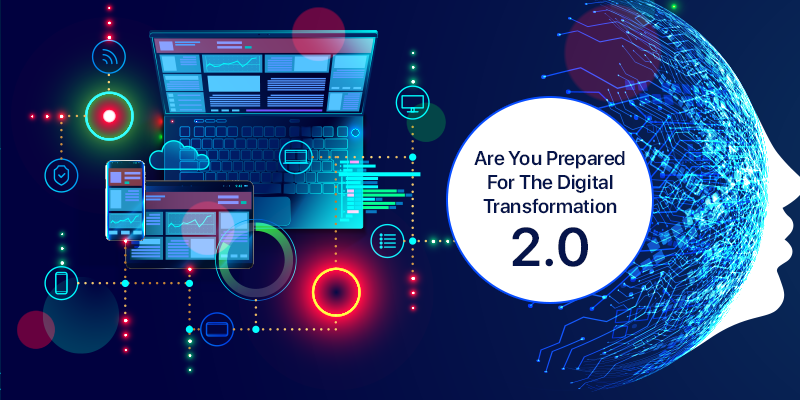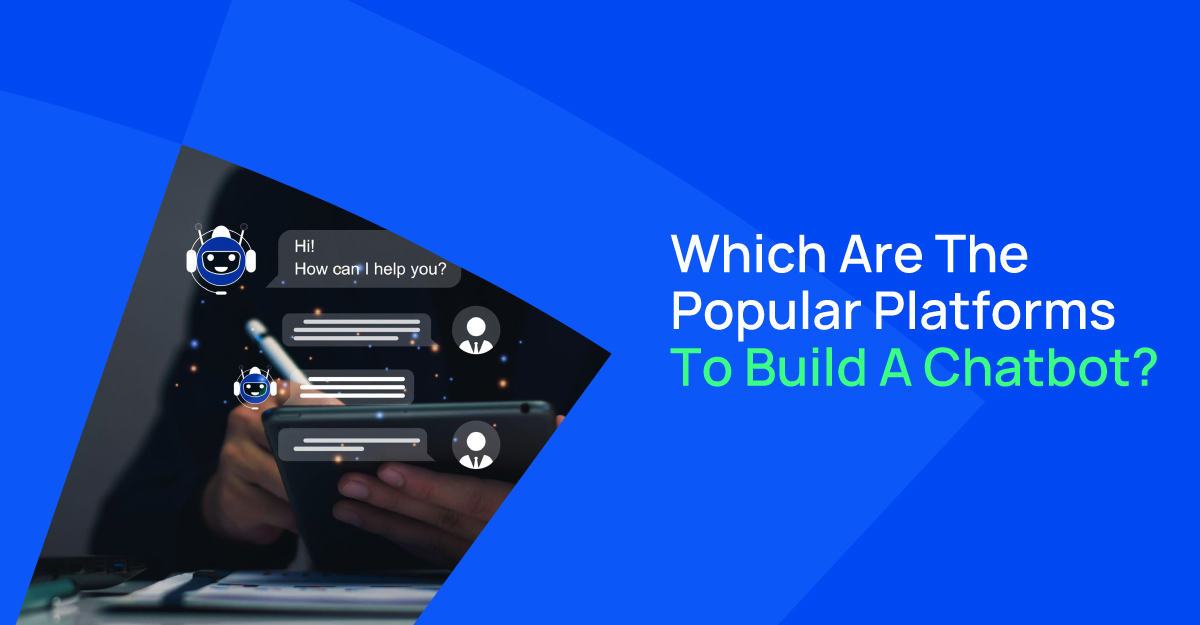In this era where all the companies are relying on technology for running their business, digital transformation became an unavoidable aspect for them to stay in a competition. Initially, digital transformation was focused on moving data to the cloud. Most of the organizations underwent large-scale digital transformations to centralized their data processing and storage by migrating entire operations to public or private cloud services. However, nowadays connected devices and huge amount of data is expecting an even more from this transformation model, and organizations are looking forward to the next phase of digital transformation which will help them to enhance the customer experience and processing data real quick.
Enter the next phase of Digital Transformation. Let’s call it Digital Transformation 2.0. It is focused on empowering the organization’s business logic by using emerging technologies like Data Analytics, IoT Devices, Artificial Intelligence, Machine Learning, Deep Learning, NLP based Chatbots, RPA, Blockchain, Edge Computing, Serverless Computing, Quantum Computing and etc. This transformation strategy helps an organization to achieve better results at both the end internal and external. As is add values in the organization as well as human life.
These are the major technology intervention which you can include in your transformation strategy:
-

1. Business becomes smarter by enabling AI system:
A leading contributor to Forbes magazine, Daniel Newman says that 1% effective data utilization out of 90% of data created in 2018 could grow to 3% to 4% by 2020. This could be achieved by promoting the data and power of analytics with Artificial Intelligence (AI) and Machine Learning (Ml). Companies will focus on using dark data (unused digital information) to gather more insights. A study by Information Age shows that by 2019, 30% of large enterprises will start generating data as a service revenue because of AI and over 40% of digital transformation initiative will use AI services.
Current market leaders also predict that almost around 75% of commercial enterprise apps will have built-in AI functionality by 2021 and over 50% of consumers will use it actively. AI assistants, AI-powered talent acquisition tools, bots, and AI-powered search, etc.
-

2. Multi-cloud services become normal
2019 State of the Cloud survey held by the RightScale’s found that 84% of the global enterprises have already adopted a multi-cloud strategy. Multi-cloud is a future. However, Data protection seems a challenge for multi-cloud. Enterprises looking for an approach to privatize data and control how and whom their data create value and risk. Moving ahead, the consumption of cloud services will grow in the coming years as cloud technology expands to facilitate the impacts of multiplied innovation. In the near future, the cloud will overtake IT spending, optimize workloads, and cloud-based apps will take over the market.
IDC predicts that by 2022, almost 40% of major IT spending will be cloud-related, and by 2028, the cloud will account for 80% or more of IT spending. On the other hand, leaders will continue to support cloud expansion and also empower workload optimization. By 2020, over 50% of modern edge IT and network services will be managed from the cloud, support by secure, virtualized edge architectures.
-

3. Edge computing will boom:
Edge computing is making headlines this year as it intends to expand computing power indeterminately and take advantage of micro-services architectures. Edge computing will become more critical, with more than 75 million IoT devices expected to be in use worldwide by 2025, generating a large volume of data. After the Forrester Analytics Global Business Technographics® Mobility Survey 2018, 27% of global telecom decision-makers say that their firms are either implementing or expanding edge computing in 2019. Similarly, other industries can also expect growth in edge computing. Also, edge computing is a key technology for your digital transformation strategy. Data predicts that the market of edge computing is estimated to reach $6.72 billion by 2022.
-

4. Beginning of 5G era
As we all know chip makers are focusing on making 5G chips in 2019, we can see the strong and capable network and it will be coupled with smart devices manufactured by the leading players. Deloitte’s TMT Predictions 2019 report predicts that approximately one million 5G-smartphone will be shipped this year, out of an estimated 1.5 billion global smartphone sales. 5G is considered to be a strong network to support next-generation technologies like self-driving cars and augmented reality offerings. 5G will bring less latency in communications, faster download speed and even great possibilities across the globe for the businesses.
In this, 2.0 world organizations are focusing on remodeling the business strategies to be customer-centric, agile and innovative at their core. Many businesses are starting to perceive the potential of digital to engage customers externally as well as streaming internal processes.
Organizations are replacing the legacy processes with automated workflows, optimizing processes to improve efficiency and thus provide better results to customer satisfaction. Also, by evolving existing infrastructure, processes and using cutting-edge technologies organizations can seamlessly Integrate their systems and data in realtime. The entire work process can be streamlined by adopting collaboration, automation, usability, and real-time processes and thus increase proficiency to make improved decisions.
Conclusion, In the next phase of digital transformation, enterprises will look to edge computing to help close the latency gap between their data and their application. While the cloud continues to play a vital role as a central data repository and processing center, apps that depend on rapid response times will move to the edge. The challenge is understanding how to combine computing, storage, and networking capabilities into a complete solution from the cloud to the edge. This is why selecting the right partner for this next phase of digital transformation is all the more critical. Let’s discuss the best transformation strategy for your organization, reach out to us on info@iconflux.com.




